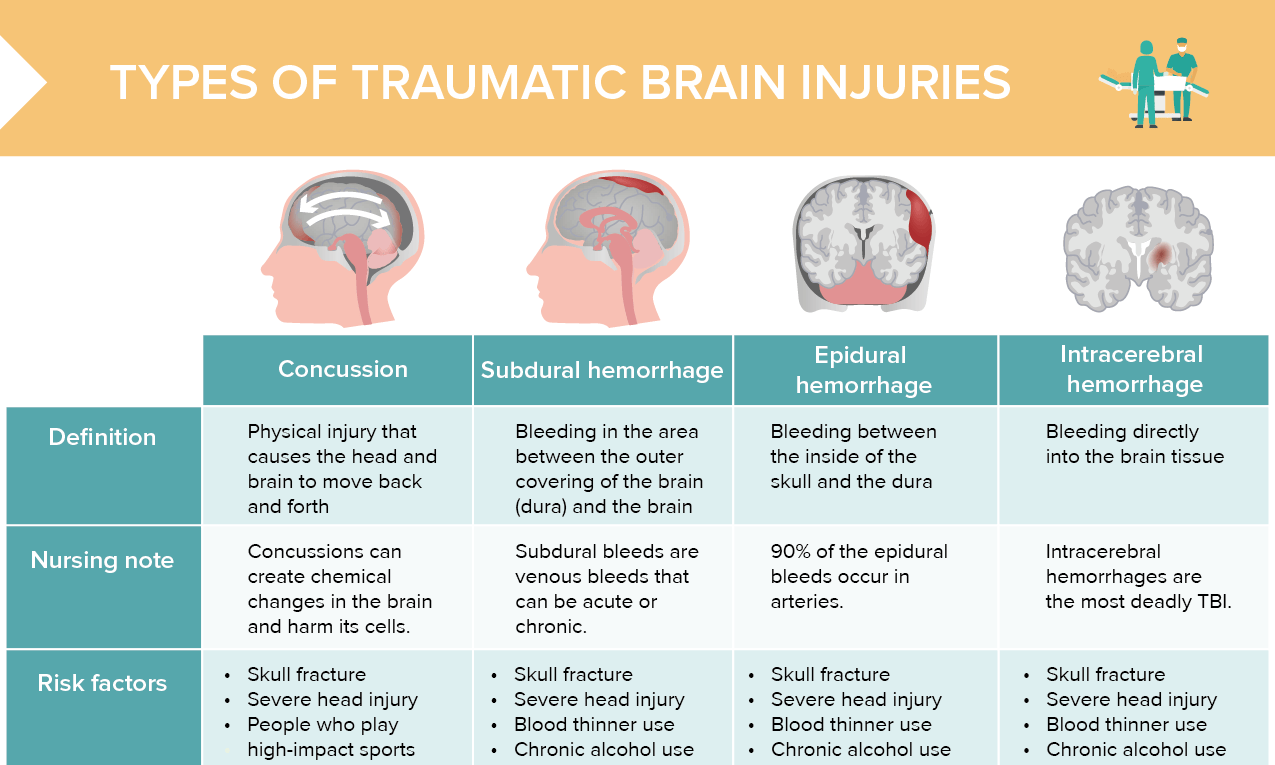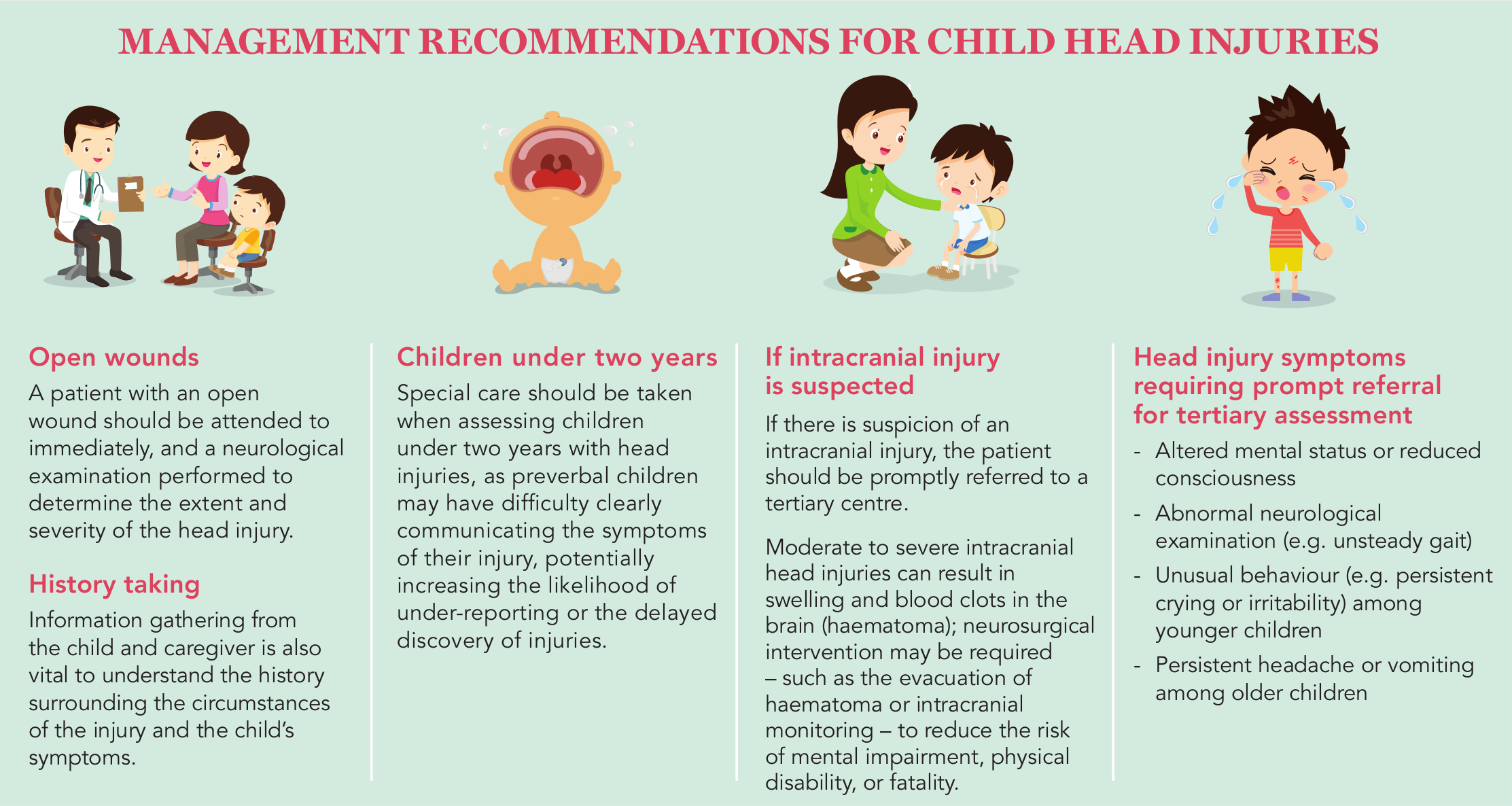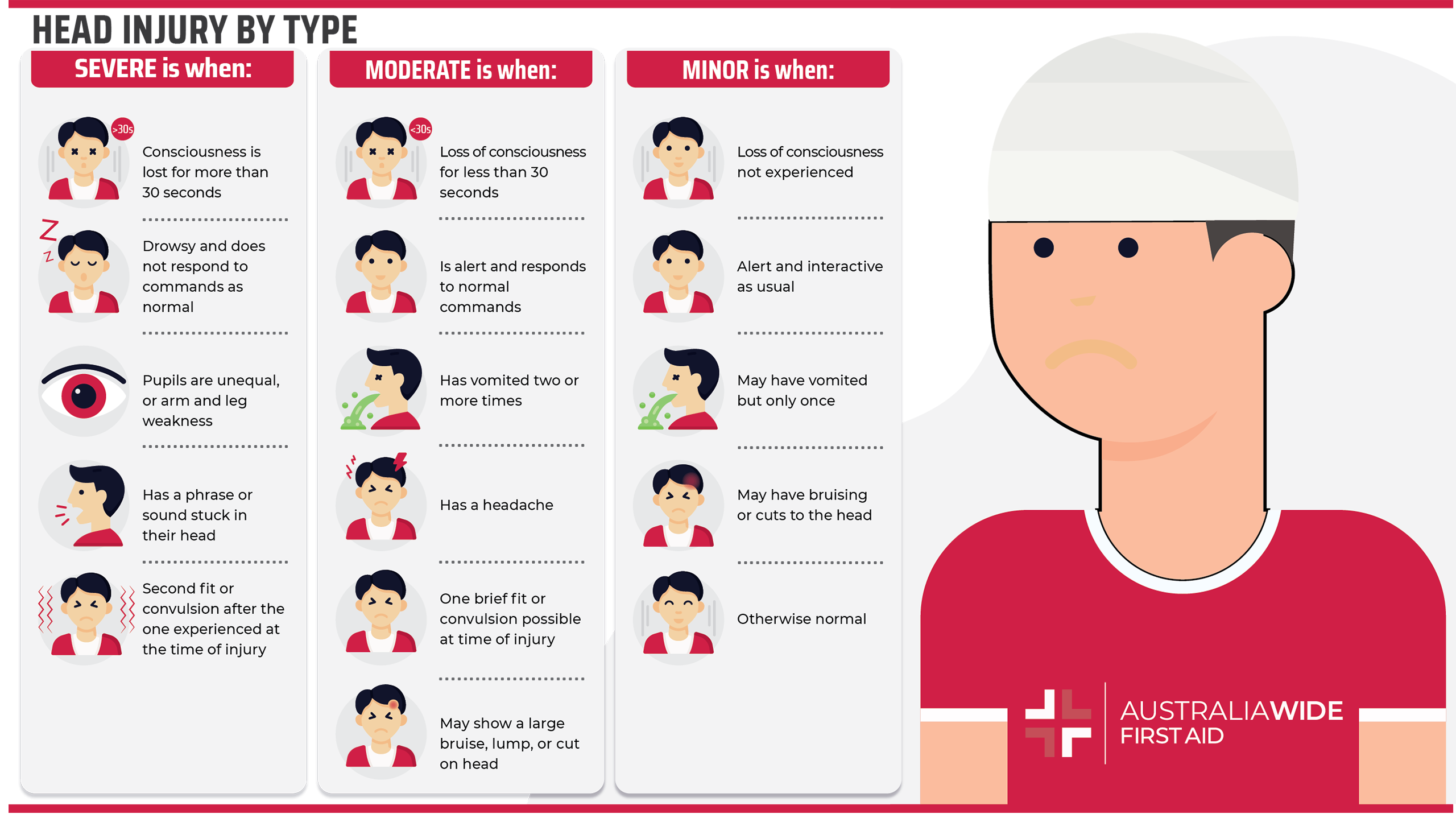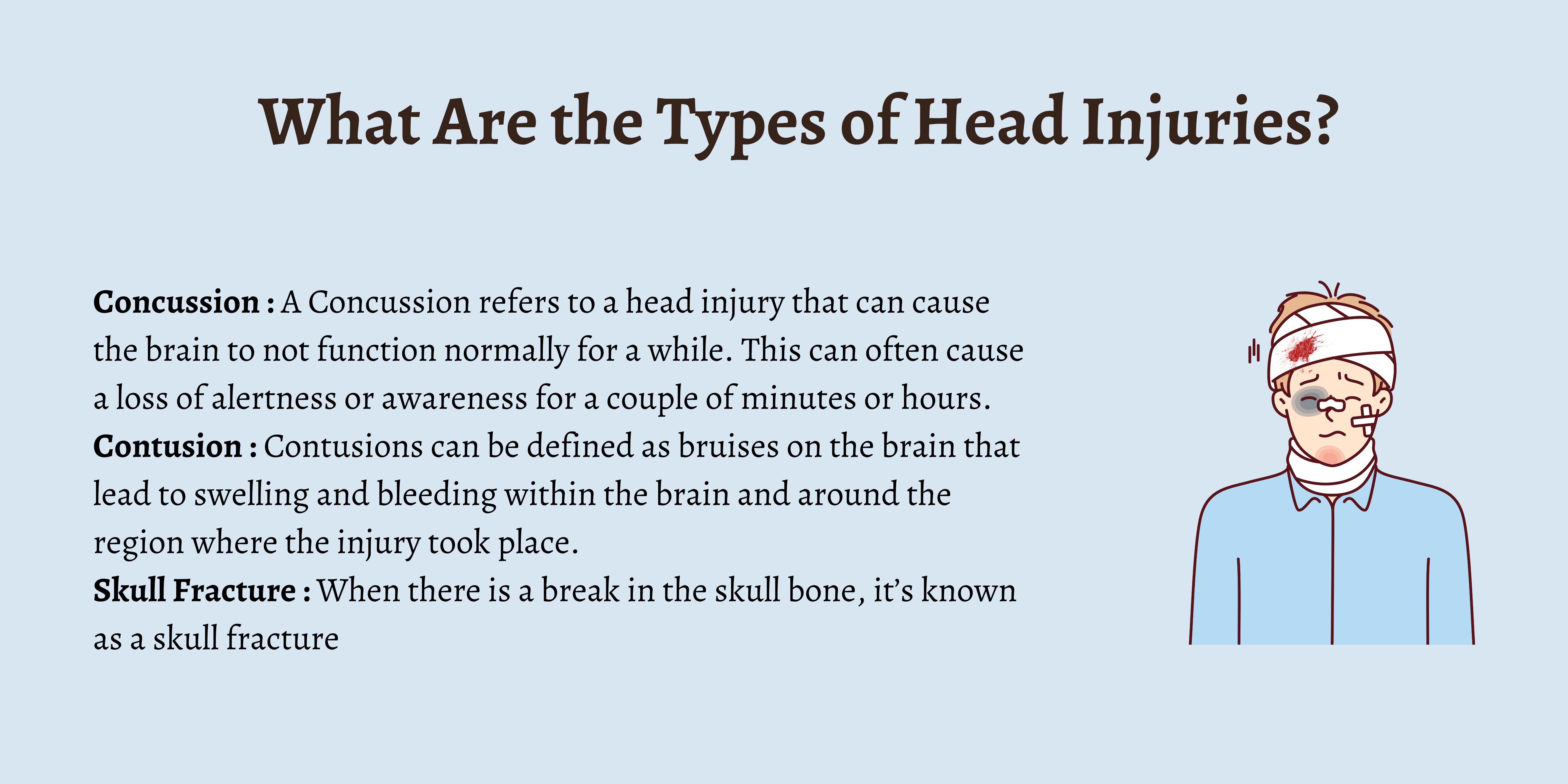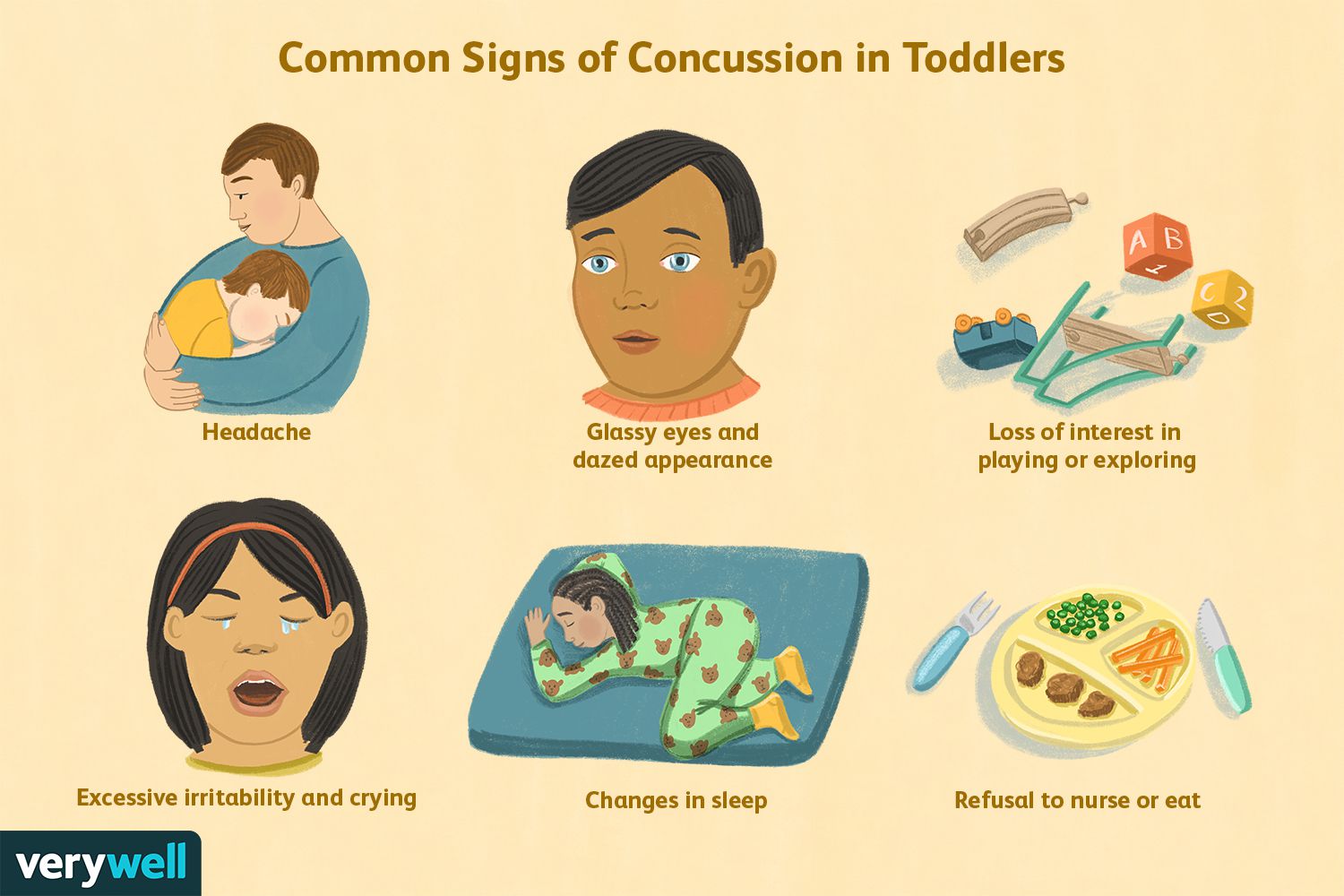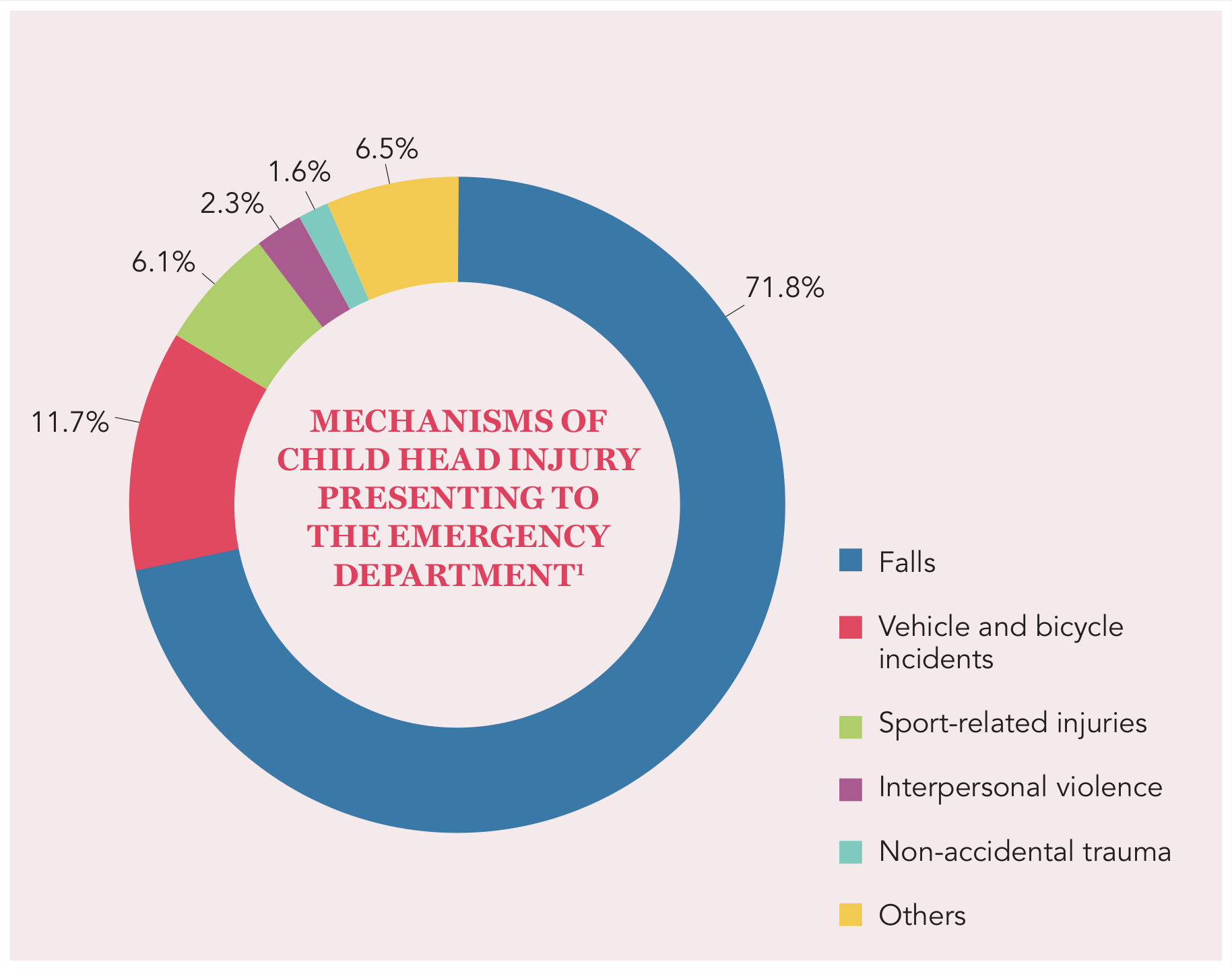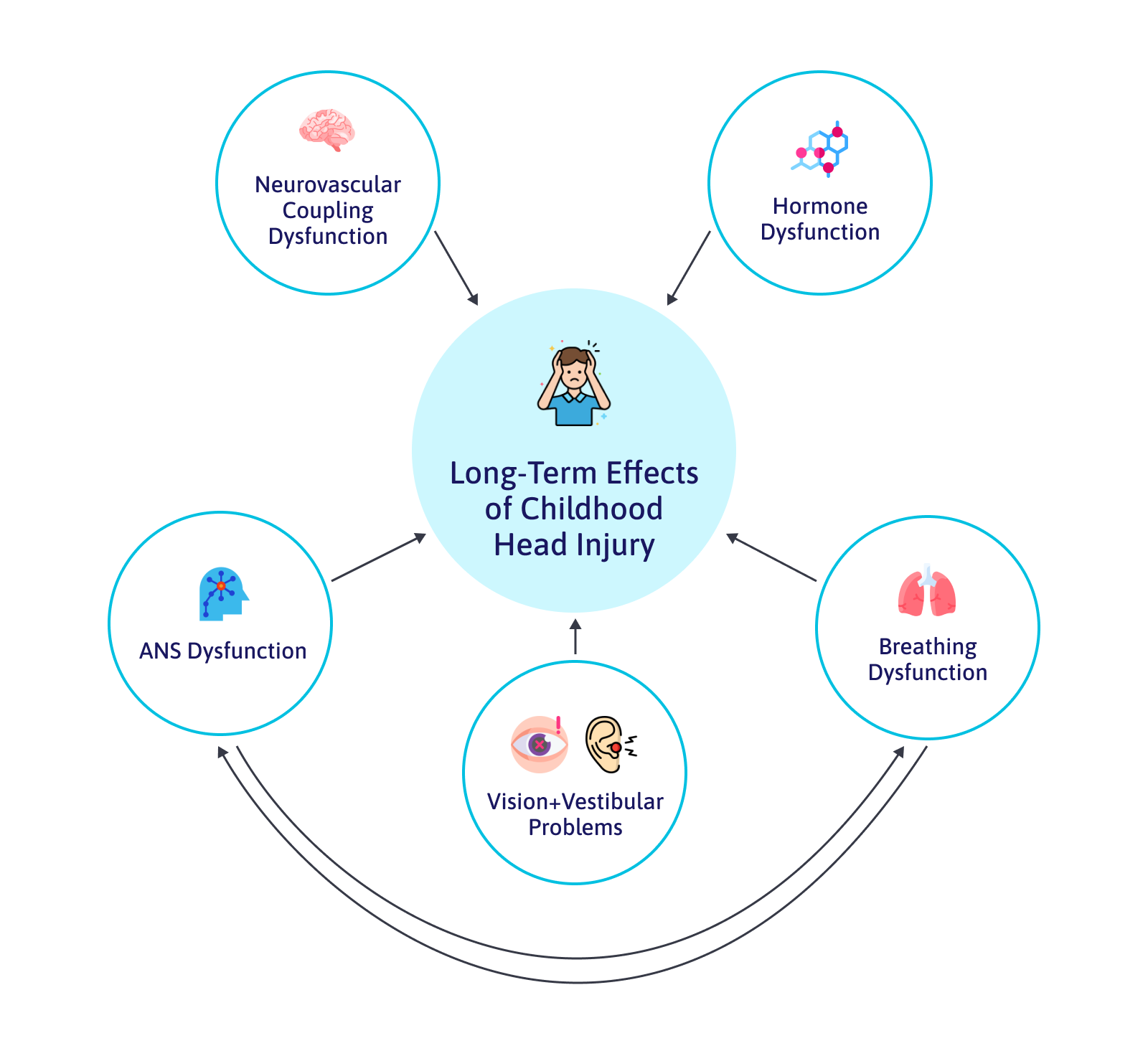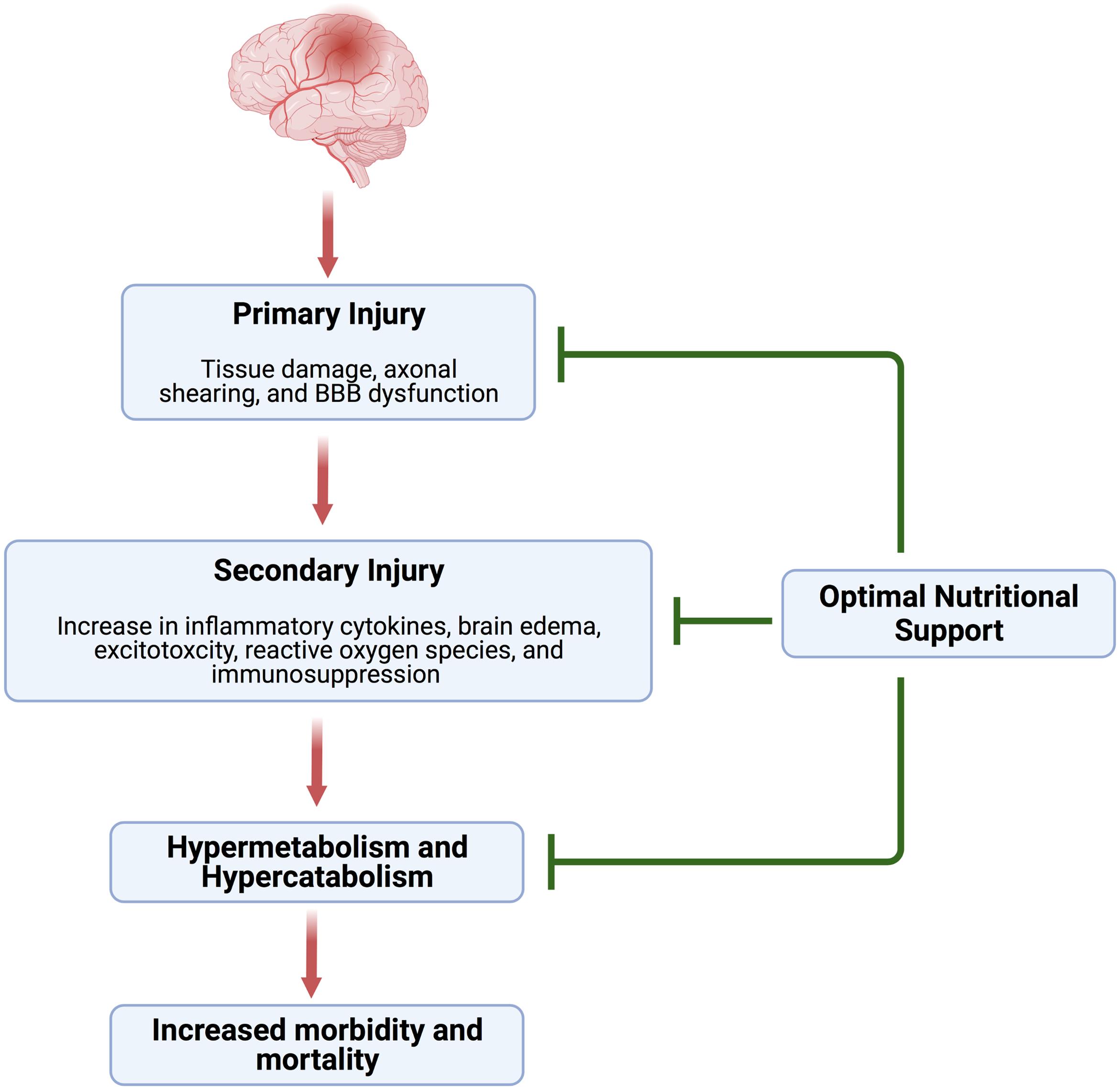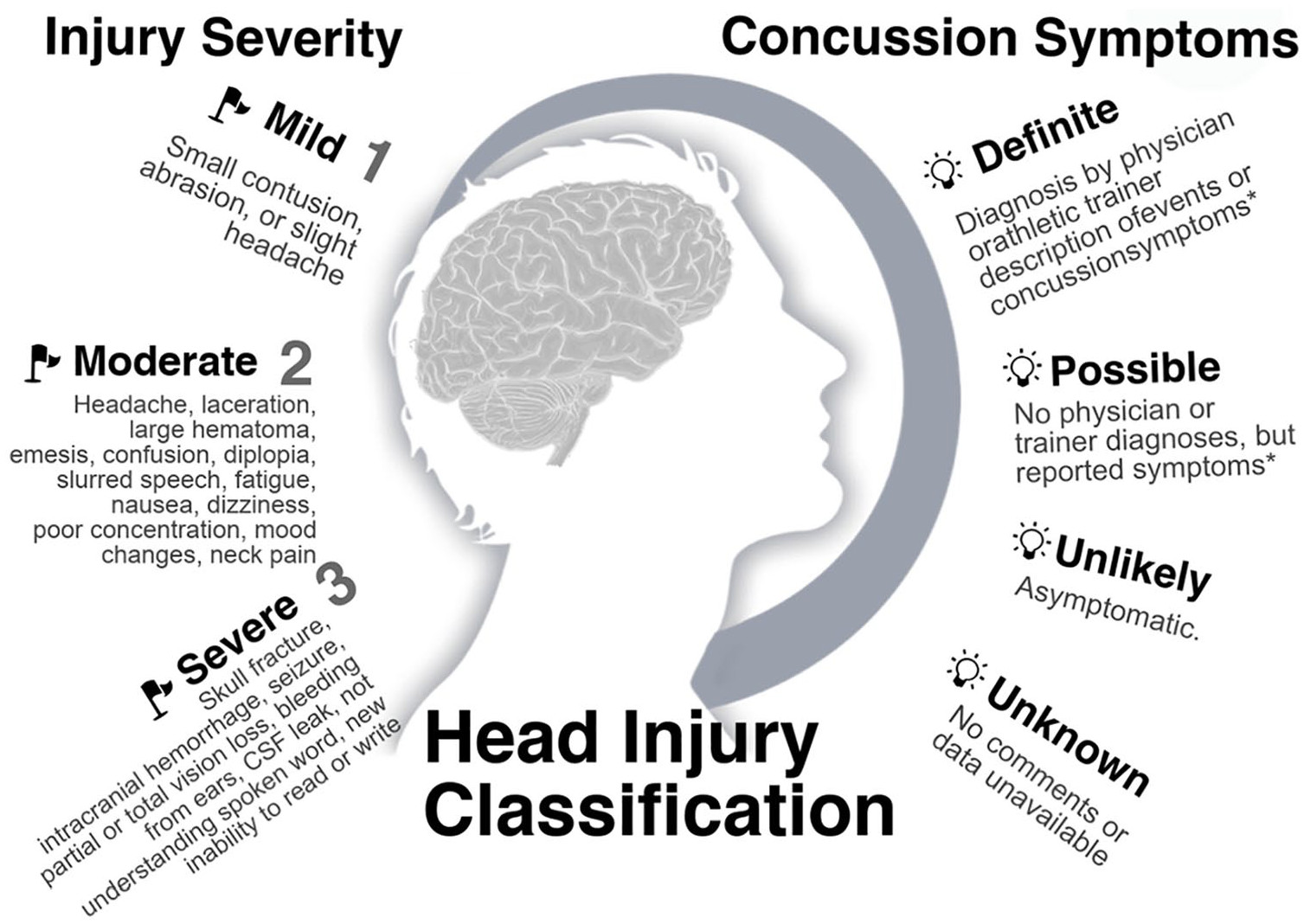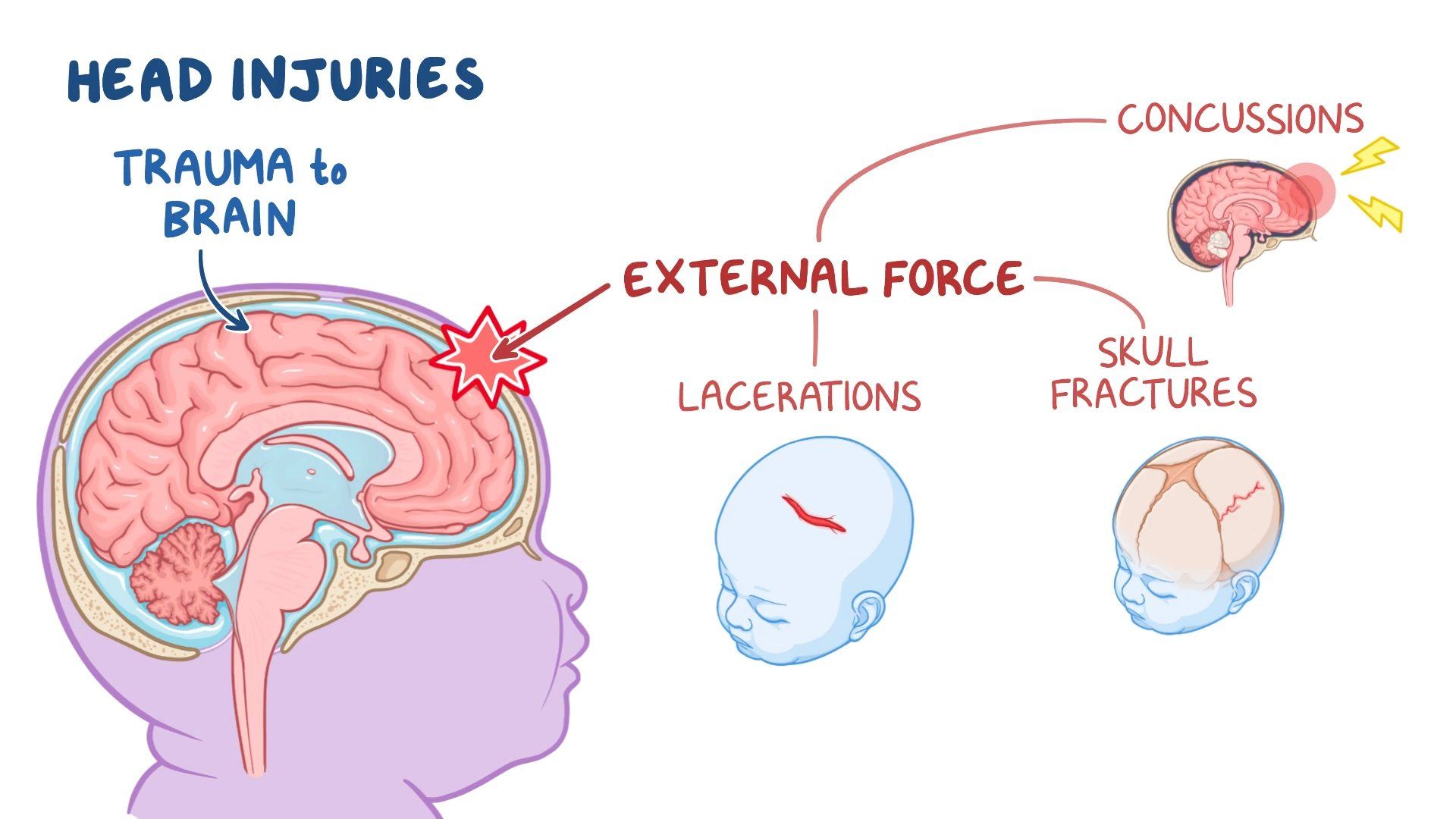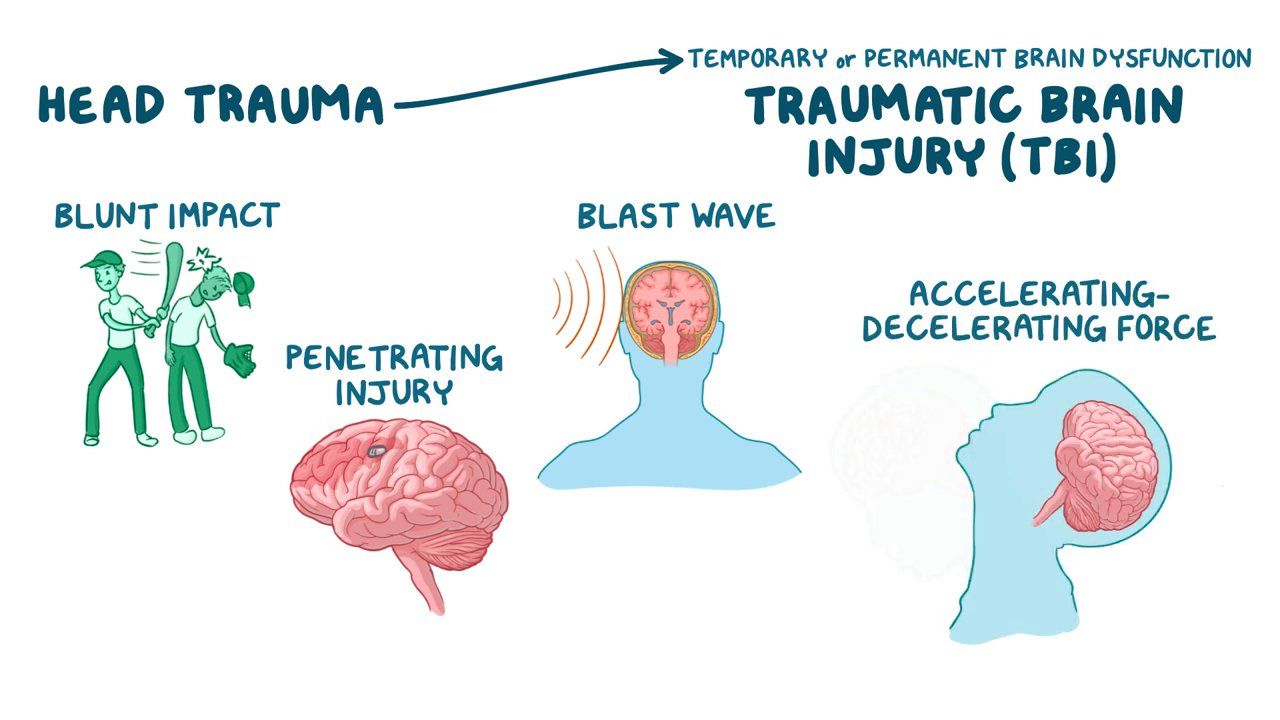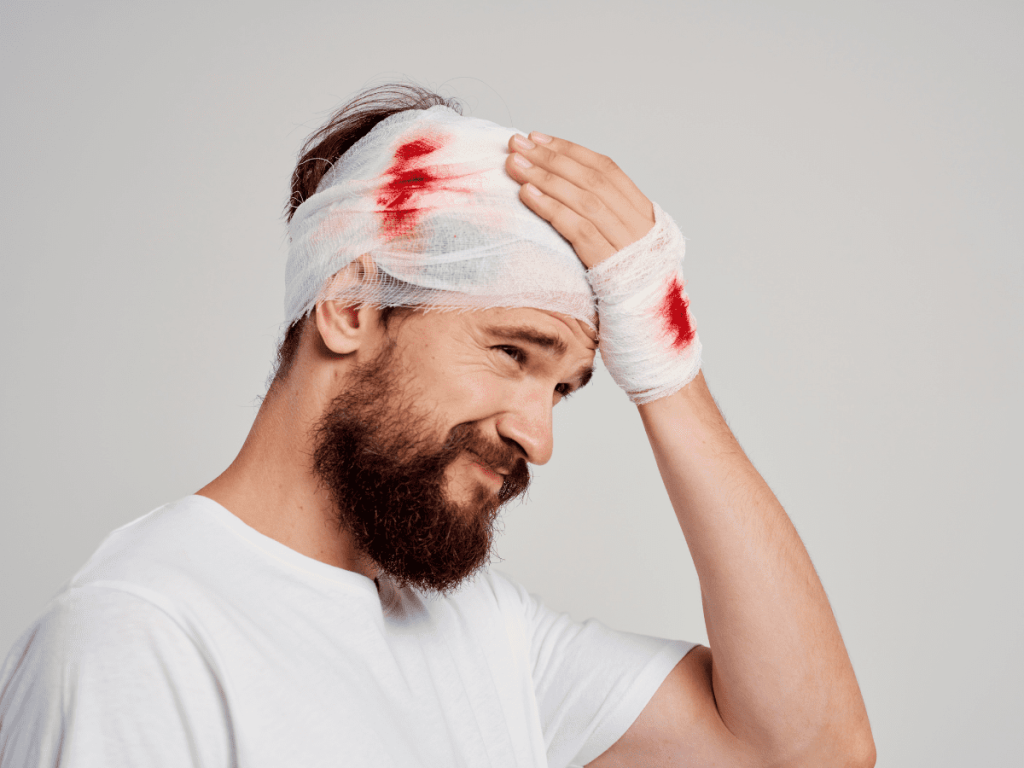
What is a head injury?
A head injury is a knock to the head. It can be mild, resulting in a small lump or bruise, or it can be more serious, leading to brain injuries such as concussion or bleeding on the brain.
Head injuries can be serious even if you can’t see them. They can lead to permanent disability or impairment, or even death. More severe head injuries always need to be seen by a doctor.
When should I call an ambulance or go to the emergency department?
You should always keep a close eye on anyone who has had a head injury. Even if the person seems okay, they could develop complications later.
Call an ambulance on triple zero (000) if:
- the head injury involved high speeds or a fall from more than one metre
- there is something stuck in the head
- there is bleeding that is difficult to stop
- the person loses consciousness or seems drowsy or does not respond
- the person is dazed or shocked, confused, disorientated
- the person seems unwell and vomits more than once after hitting their head
- there is severe bleeding from the head or face
- blood or fluid is leaking from the nose or ears
- the person has blurred vision or unequally sized pupils
- the person has weakness in an arm or leg
- the person has a seizure (fit)
- the person stops breathing
What should I do while waiting for an ambulance?
If the person is unresponsive, with no signs of breathing or circulation, start CPR.
If they are conscious, keep them still as they may have a spinal injury. Place them in a comfortable position with the head and shoulders slightly raised. If they are wearing a helmet, don’t remove it.
If they are bleeding, put firm pressure on the wound using a sterile gauze or a clean cloth. Don’t do this if you suspect a skull fracture.
What are the symptoms of a head injury?
Symptoms of a minor head injury include a bump or bruise, nausea, a mild headache and dizziness. If the person is now alert and interacts with you, and is otherwise normal, it may be a mild head injury.
Signs of a more serious head injury can start later. Go to the emergency department straight away if the person with the head injury:
- vomits more than once
- has trouble seeing, hearing or speaking properly
- has a headache which is getting worse or won’t go away with paracetamol
- has difficulty seeing or hearing
- is confused or acting strangely
- has difficulty staying awake
- has pupils which are a different size to each other
- loses balance or feels dizzy
- loses memory
- has bleeding or discharge from the ear or nose
- has a seizure or starts twitching or convulsing
- develops blurred or double vision, or becomes clumsy
- has difficulty swallowing or eating
You should also see your doctor if:
- you develop any other new symptoms
- you become increasingly concerned
What are the causes of head injuries?
The most common causes of serious head injuries are:
- car accidents
- sports injuries
- accidents at home, such as slips, falls or trips
- accidents at work, such as falls or being hit on the head
- assaults
- falls
How is a head injury treated?
If you are at home, you can treat minor head injuries by sitting quietly and using an icepack. You need someone with you to watch you closely for 24 hours (or 48 hours for children or older people). You can take paracetamol, but not other painkillers.
There is no need to stay awake following a head injury. The injured person needs to be woken gently every 4 hours to make sure they respond normally. If they don’t, they should go to the nearest emergency department.
After a head injury, the most important treatment is complete physical and mental rest. That means not using computer screens, playing video games or working or studying for at least 24 to 48 hours. You should not play sport and you may need to take time off work until you are feeling better.
Do not drive or operate machinery for at least 24 hours after a head injury. Drinking alcohol, taking sleeping pills or using drugs will make you feel much worse.
If you are not sure, talk to your doctor.
Can head injuries be prevented?
You can prevent head injuries by:
- always wearing a seatbelt
- using an appropriate child restraint
- never drink or drug driving
- wearing a helmet when you’re on a bicycle, skiing or playing contact sports
- preventing falls with good lighting and removing obstacles
Are there complications of head injuries?
Most people recover from a head injury after a few days. But you may have some symptoms afterwards, including:
- mild headaches that won’t go away
- feeling dizzy or nauseous
- sensitivity to noise or light
- balance problems
- problems concentrating, feeling vague and ‘foggy’
- memory problems or forgetfulness
- feeling angry, anxious, stressed or emotional
- changes to your sleep
- feeling very tired or having no energy
